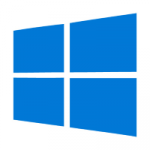 Adobe usually releases security updates for its software on Patch Tuesday, but they apparently decided that the seven vulnerabilities addressed in Acrobat Reader DC 2018.011.20063 shouldn’t be delayed.
Adobe usually releases security updates for its software on Patch Tuesday, but they apparently decided that the seven vulnerabilities addressed in Acrobat Reader DC 2018.011.20063 shouldn’t be delayed.
The release annoucement for Adobe Reader 2018.011.20063 provides some details about the vulnerabilities. One of them, CVE-2018-12848, can lead to Arbitrary Code Execution, and is flagged as Critical.
It’s important to keep Acrobat Reader DC up to date, because it’s still being used to deliver malware, embedded in PDF documents. It’s especially important if you’ve enabled Reader in your web browser.
If you use Acrobat Reader DC, you can check whether it’s up to date by navigating its menu to Help > About Adobe Acrobat Reader DC. There’s also a Check for Updates function in the Help menu. On my Windows 8.1 computer, a Windows Task Scheduler task (added by Adobe) updated the software within a few hours of the new version’s release.
 boot13
boot13 Another new version of Chrome was released earlier this week:
Another new version of Chrome was released earlier this week:  Analysis of Microsoft’s
Analysis of Microsoft’s  Adobe’s providing us with a new version of Flash this month.
Adobe’s providing us with a new version of Flash this month.  Despite the major version increment,
Despite the major version increment,  It’s update time again.
It’s update time again. One of Windows 10’s most frustrating features is the way it installs updates. Unless you’re using an enterprise version, updates are almost completely out of your control. You can’t prevent them from installing, and there’s very little you can do to control when they install, or when your computer restarts to complate installation.
One of Windows 10’s most frustrating features is the way it installs updates. Unless you’re using an enterprise version, updates are almost completely out of your control. You can’t prevent them from installing, and there’s very little you can do to control when they install, or when your computer restarts to complate installation.